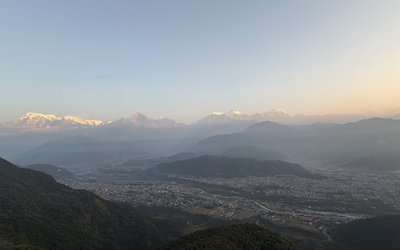Nepal’s democratic history is rich in struggles and sacrifices. Many individuals devoted their lives to the cause of democracy. Late Jagannath Acharya is one of them. Born in Kaushaltar of Bhaktapur district, late Acharya, a Nepali Congress leader, played an important role in the democratic movement of 2007 and the first People’s Movement of 1990.
Leaders B.P. Koirala, Ganesh Man Singh, Krishna Prasad Bhattarai and Subarna Sumsher Rana lauded late Acharya for his role in the democratic movement of Nepal. Senior politician Acharya was imprisoned by Ranas during the revolution of 2007. His struggle continued after the overthrow of democracy in 1960 by King Mahendra.
Daring and courageous, Acharya sacrificed his personal interests to the cause of democratic values and principles. He died more than seven six years ago. But he is remembered in his birthplace by democratic activists who published a book dedicated to him.
Published by Jagannath Acharya Memorial Trust, the book is the first by the trust, and is a collection of articles and his views regarding his commitment to democracy. There are also several pieces which are related to the life of Acharya. Late leaders B.P. Koirala, Ganesh Man Singh and Kishunji praised the courageous role played by senior leader Acharya.
“Our colleague Acharya is a daring personality and leader of poor farmers and without his insistence the land reform could not have taken place,” writes B.P. Koirala in his observation on Acharya.
Similarly, Nepali Congress leader Ganesh Man Singh also hailed the personality of Acharya. In his observation, Singh found him a courageous leader with full commitment to democratic ideals.
Along with the memorable articles written by party colleagues like Daman Nath Duhngana, Bhim Bahadur Tamang, Nara Hari Acharya, Pradip Giri, Dr. Ram Sharan Mahat, Arjun Narsingh KC, Hom Nath Dahal, politicians like former prime minister Lokendra Bahadur Chand, CPN-UML leaders Keshab Badal, Radha Krishna Mainali, and Maoist leader Lila Mani Pokharel have also written about his personality.
One of the important parts of Acharya’s life was that he always pursued the cause of land reforms and held the view that the rights of the tiller need to be protected. This is the crux of the land reform program after 1990. Despite opposition from several quarters, he was able to pursue the program.
This is an important book to know about late Acharya’s firm commitments to democracy, human rights and rule of law. His views on revolutionary land reform program are another important aspect that needs to be considered alongside attempts to bring about changes in the Nepali society. By publishing the book, the Academy has made a major contribution, especially because it highlights the role of an important personality overshadowed by the humdrum politics that the common Nepalese people are made to see on a daily basis.
- INDIA PAKISTAN CONFLICT: Nepal’s Security Challenges
- May 14, 2025
- ADB: Nepal To Grow By 4.4 Percent
- May 02, 2025
- UML POLITCIS: Oli Vs Bhandari
- Apr 29, 2025
- FORMER KING GYANENDRA: Bating Constituional Monarchy
- Apr 28, 2025
- NC-UML COALITION: In Turmoil
- Apr 27, 2025
















